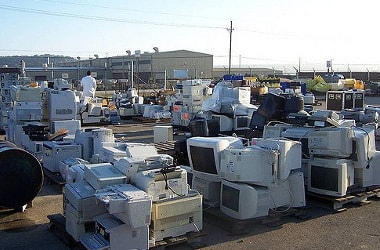
Electronic waste or e-waste is rising sharply across Asia. Higher incomes allow millions of people to buy smartphones and other gadgets with serious problems for human health and the environment.
The UN study has found e-waste in Asia has jumped 63 percent in 5 years. A report by the United Nations University also warned of the need to improving recycling and disposal methods.
Many countries lack infrastructure for eco-friendly e-waste management. Increasing volumes are a cause for concern, according to the UN University's Sustainable Cycles Programme.
China and other nations in Asia are dumping grounds for e-waste from developed nations. The Asian nations recycle the waste in unsafe but ultra cheap backyard factories.
Asia has emerged as a source of increasing e-waste with affluent customers also buying items such as phones, tablets, personal computers and TVs.
China alone has doubled its generation of e-waste between 2010 and 2015 according to the report.
Per capita, the worst economy in the region is Hong Kong. Each person in this Chinese region generates 21.7 kg or 47.8 pounds of e-waste in 2015.
Singapore and Taiwan are also leading in e-waste, with 19 kg per person generated in 2015.
The lowest e-waste generators were Vietnam, Philippines and Cambodia. These nations averaged 1 kg of electronic waste per person.
Fighting illegal dumping is a must. Improper e-waste generates toxic chemicals which cause severe health and environmental consequences.
Acids to separate metals in e-waste are dangerous and this exposure can lead to serious health problems.
For example, a Chinese town Guiyu which build its economy on overseas e-waste recycling is facing toxic water and air contamination. High lead levels are found in the blood of the residents.
Electronic remnants were also strewn in the stream and led to danger in terms of contaminating the water supply.
People's Republic of China's Government: Know More - Government: Unitary Communist state
- Party General Secretary and President: Xi Jinping
- Premier: Li Keqiang
- Congress Chairman: Zhang Dejiang
- Conference Chairman: Yu Zhengsheng
- First-ranked Secretary of the Secretariat: Liu Yunshan
- Secretary of Discipline Inspection Commission: Wang Qishan
- First Vice Premier: Zhang Gaoli